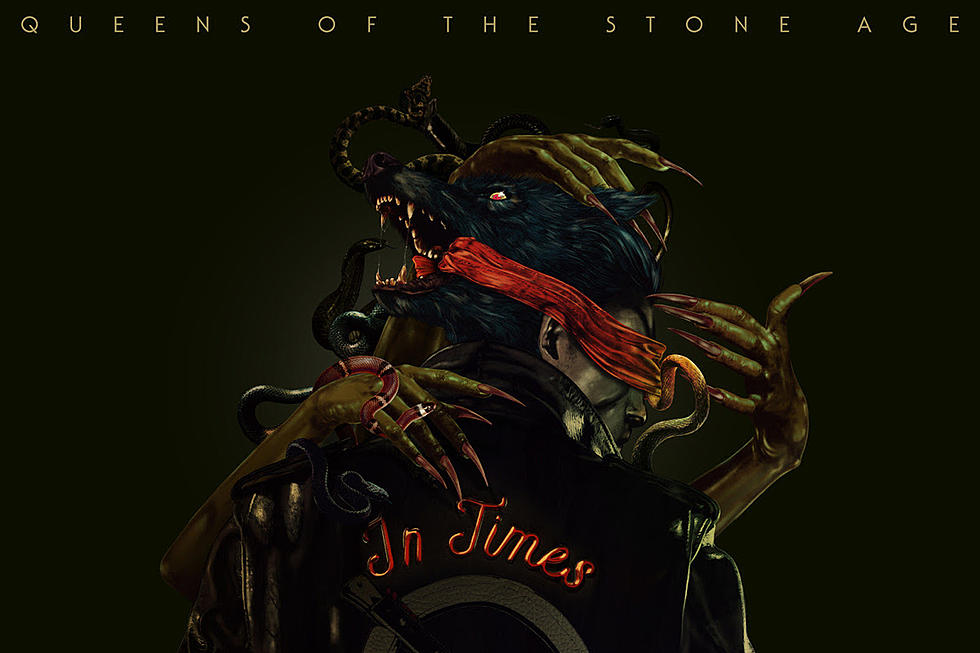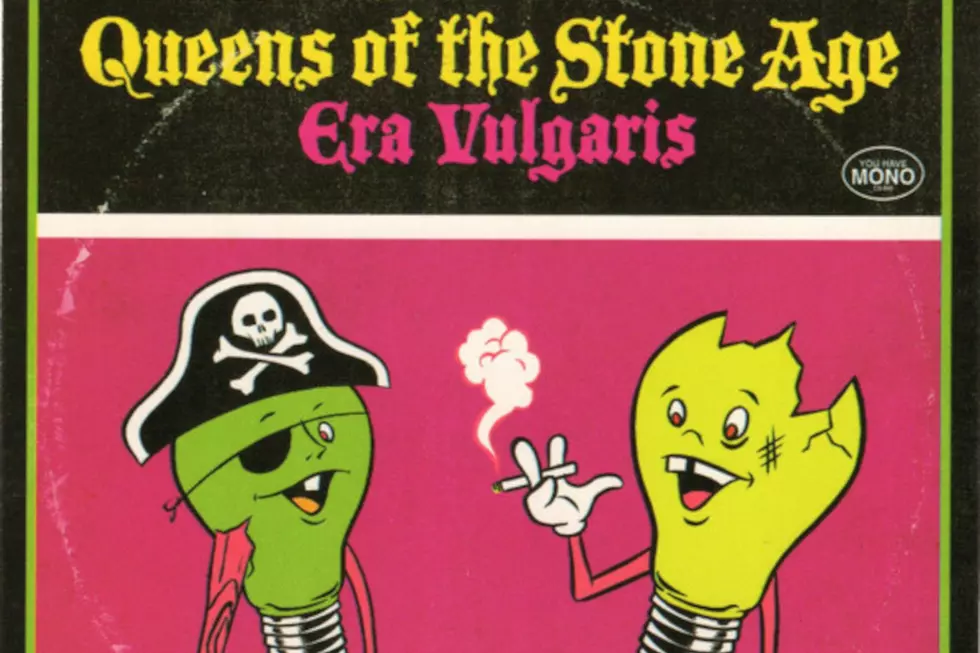
How Queens of the Stone Age Began Their Ascent With ‘Rated R’
Queens of the Stone Age helped kick off the new millennium with one of rock's most unusual, intriguing and original albums.
As a band still on the rise, they probably prompted countless questions of "Queens of the what?" from mainstream music fans, who were not aware of band members Josh Homme and Nick Oliveri's '90s exploits with pioneering rockers Kyuss.
Released on June 6, 2000, Rated R was spawned out of the same collective creative environment responsible for Homme's spontaneous Desert Sessions – as well as Queens of the Stone Age's excellent self-titled debut from 1998. But this gem ultimately transcended so-called "stoner" rock's fundamental, guitar-riff-driven blueprint with a textural melange, both hard and soft, rife with incongruous stylistic blends and stylistic departures.
QOTSA's opening thrash-out "Feel Good Hit of the Summer," with its catalog of recreational drugs for lyrics, has to be seen as a fond acknowledgement and adieu to the Queens' past. At the same time, the dynamic masterpiece "Better Living Through Chemistry," just a few songs later, already chose a more subtle approach.
In between, Homme and company delivered their first bona fide hit in "The Lost Art of Keeping a Secret" (which balanced its driving momentum with sugary vibes contributed by Screaming Trees drummer Barrett Martin), a shuffling exercise in musical discord named "Leg of Lamb" (which still worked beautifully), and a mellow marriage of groove and harmony on "Auto Pilot" (brought to an unsettling place by Oliveri's first lead vocal).
Watch Queen of the Stone Age's 'Feel Good Hit of the Summer' Video
Things got really interesting in the album's second half, via the psychotic psychedelia of "Monsters in the Parasol," Oliveri's next, strangled vocal on the panicked "Quick and to the Pointless," and Mark Lanegan's soulful, throaty turn on "In the Fade" – the first of many, inspired appearances with Queens of the Stone Age.
This last song's soothing swing was rudely countered by another Oliveri freak out named "Tension Head" (which somehow managed to retain complete control of itself, while fighting tooth and nail to escape its straitjacket), then a gentle acoustic instrumental from guitarist Dave Catching named "Lightning Song," and, finally, the meandering, near-nine-minute sprawl of "I Think I Lost My Headache," which brought the proceedings to a surreal finish once the horn section arrived.
All told, these consistently unpredictable twists and turns assured that QOTSA would be impossible to ignore, never mind easy to pigeonhole into some remote musical underground backwater.
Queens of the Stone Age's sonic evolution gave snooty music critics, pre-programmed to reject heavy sounds like those previously churned out by Kyuss (and like-minded rockers like Clutch, Fu Manchu, et al), an opening to embrace Queens of the Stone Age as a more acceptable form of art rock ensemble.
Fans began to respond, as well. Thoroughly weird and strangely alluring, Rated R only reached No. 106 on the Billboard charts, but 2002's Songs for the Deaf would become the first of a string of U.S. Top 20 albums.
Queens of the Stone Age Albums Ranked
More From Ultimate Classic Rock









